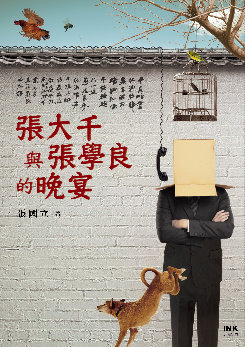One dinner table. One moment in history. Chinese New Year, 1981. Chang Dai-Chien, world renowned artist, is preparing dinner at home in Taipei for a group of friends. Among them he has invited one special guest in particular, Chang Hsueh-Liang, once warlord of Northeast China and ally of Chiang Kai-Shek, who has lived under house arrest since 1936 after a failed military coup. But in the lead up to the dinner party, the Chinese Communist Party has expressed a desire to draw Chang Hsueh-Liang to their cause, sending one of their agents with a secret present. The approach has not gone unnoticed by the Intelligence Services in Taiwan and now the painter is by extension thrown into suspicion. They will do everything they can to prevent the dinner from going ahead.
The Intelligence Services decide to send their newest recruit, Snow Liang, to work in the warlord’s household, where she discovers the real Chang Hsueh-Liang to be very different from the supposed traitor she has read about in textbooks. She is now faced with a choice; do what’s best for her career, follow orders from above, or put her trust in the old man? When the party takes place two weeks later than expected, she becomes eyewitness to the friendship of two larger-than-life figures in the twilight of their lives. History, she realises, is never as simple as what they teach you in school.
Chang Kuo-Li brings to life a Taiwan under martial law, with characters whose reputations give them almost emblematic status. It is precisely by drawing on such sensitive historical issues that we feel the contrast, between the paranoia outside and the warmth around the table. AN UNLIKELY BANQUET serves up a menu of poetic perfection, and opens up the space between collective memory and the intimate realities of history’s most significant moments.
BOOKS

AN UNLIKELY BANQUET
張大千與張學良的晚宴
- Author Chang Kuo-Li
- Translator Malachi McGee
● READ MORE ●
DOWNLOAD ENGLISH SAMPLE
SAMPLE
Rights Sold
Simplified Chinese (Shanghai People’s)
More Info
Category: Literary Fiction
Publisher: Ink
Date: 2014/2
Pages: 272pp
Length: 79,000 characters
(approx. 50,000 words in English)
Rights Contact
Anita Lin (Books from Taiwan)
Press & Media (Chinese)
#
- Picture Book
- Literary Fiction
- Manga
- Graphic Novel
- Science
- Golden Comic Award
- Short Stories
- Fantasy
- Crime
- Memoir
- Self-Help
- Taipei Book Fair Award
- Golden Tripod Award
- Lifestyle
- Crime Fiction
- Science Fiction
- film adaptation
- Openbook Award
- Taiwan Literature Award
- Parenting
- Art
- Middle Grade
- History
- Travel
- Social Science
- Commercial Fiction
- Health
- Romance
- China Times Open Book Award
- Horror
- Feng Zikai Chinese Children’s Picture Book Award
- YA
- Reportage
- Mirror Weekly Book of the Year
- Nature
- Heartwarming
- Literary Non-Fiction
- Architecture
- Politics
- Photography
- Kingcar Soji Shimada Award
- Historical Fiction
- Design
- Asia Weekly Top Ten Chinese Novels of the Year
- Wu Zhuoliu Literary Prize
- Business
- Hsin-Yi Children’s Literature Award
- Novellas
- Young Adult
- Documentary
- MM Romance
- Humanity
- Film Book
- UDN Grand Literary Award
- Upmarket Fiction
- LGBTQIA+
- Spy Fiction
- FF Romance
- Chapter Book
- Folk Tales
- Bologna Ragazzi Award
- Philosophy
- True Crime
- Music
- King Car Fantasy Fiction Prize
- Language
- Suspense
- Thriller